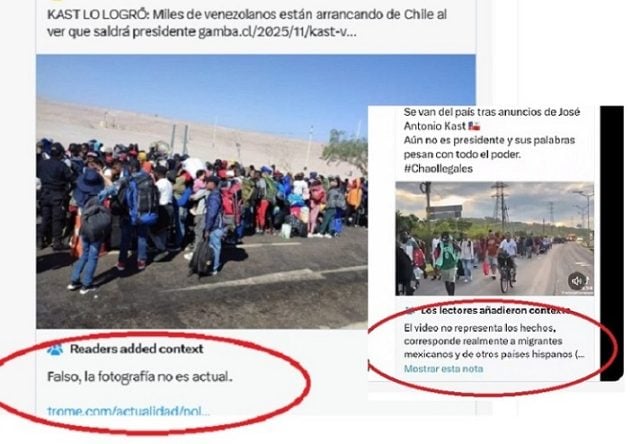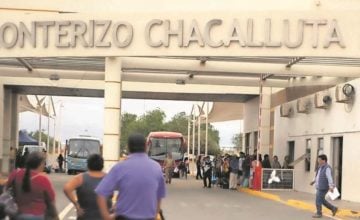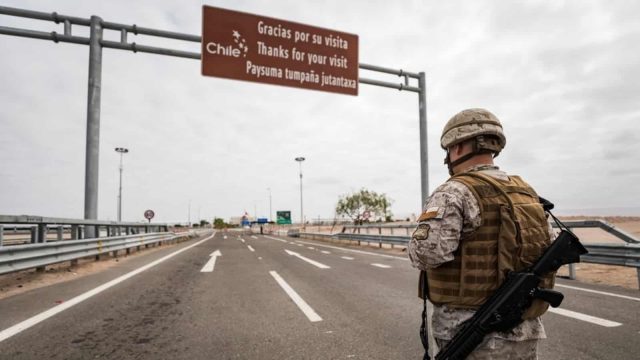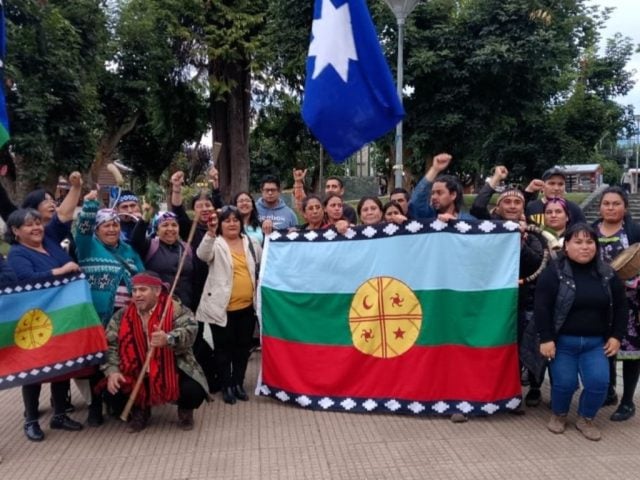Original article: Plan “Escudo Fronterizo” es criticado por producir vulneraciones a los Derechos Humanos de personas migrantes
The candidate claims to aim at curbing illegal migration and smuggling; however, this proposal wrongly links migration with insecurity.
The «Operation Northern Sentinel» is set to kick off José Antonio Kast’s Border Shield Plan, which aims to «restore border governance» and reduce illegal crossings into the country. Actions in this first phase involve deploying armed forces and constructing mobility barriers, with Kast explicitly stating in his remarks regarding detaining and expelling individuals: «they will leave with just what they have,» he asserts.
In response to this plan, activist and co-founder of the Migrants Organization, Catalina Bosch, argues that the foundation of these proposals is: «to exploit this erroneous connection that has been made between migration and insecurity.» She adds that, in this context, migrants are portrayed as «the main threat against the most cherished good, which is security,» claiming this is a «diagnosis based on a fallacy lacking sufficient evidence, yet has proven highly effective» in the political-electoral realm. She notes that advocating for restrictions on any migrant entry into the country resonates well with a significant portion of the electorate.
The Republican program also includes strengthening border control in the regions of Tarapacá, Antofagasta, Arica, and Parinacota, addressing land, maritime, aerial, spatial, and cybersecurity dimensions. Bosch emphasizes that the proposal not only lacks statistical support but also overlooks crucial considerations, such as «international treaties, the protection of individuals often displaced forcibly, or those seeking asylum from oppression or hunger, who should indeed be the subject of care policies.» According to the psychologist and human rights activist, it completely ignores the commitments humanity should uphold.
Regarding the situation of those entering without documents, Bosch maintains that migration in irregular conditions is not ideal, especially for the migrants themselves who often face dangerous and adverse situations. However, she stresses that sometimes it is the only option available to them, confirming our responsibility to promote safe migration from a responsible and informed perspective: «more than attacking migrants as if they were enemies,» she states.
The expert also urged the public to seek credible information, noting that unfortunately, there aren’t many sources rigorously addressing migration that also enjoy wide dissemination. Thus, she suggests it is essential to evaluate the sources underpinning certain proposals, advocating that they should be based on «evidence, research, and literature,» rather than merely on «someone’s personal opinion,» she concludes confidently.
Ultimately, the proposal aimed at enhancing national security through strict control measures and a deterrent expulsion effect would hinge on the criminalization of migrants and neglect Chile’s international commitments. Activists argue that public policies should prioritize support, protection, and the guarantee of rights for those in forced displacement or seeking refuge, grounded in evidence rather than fear.










